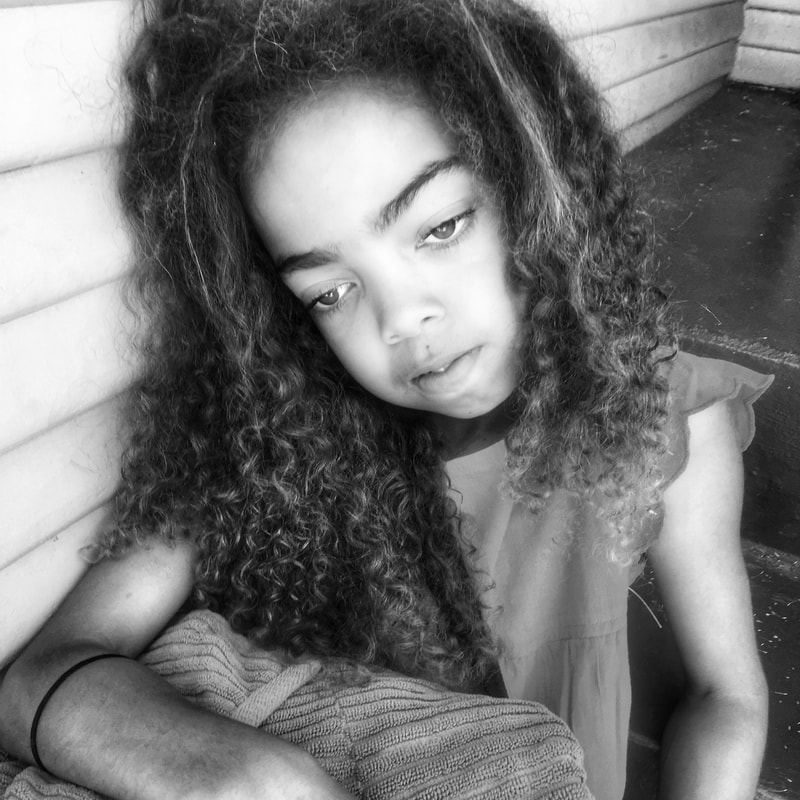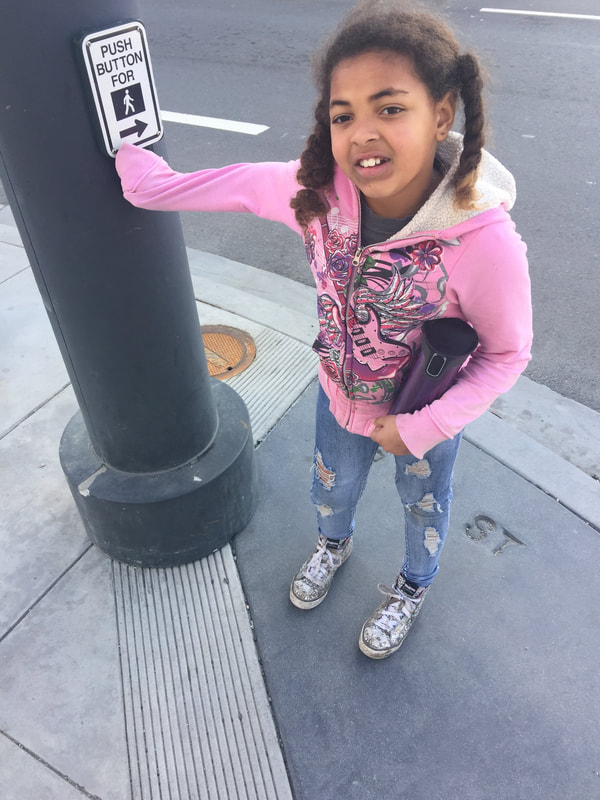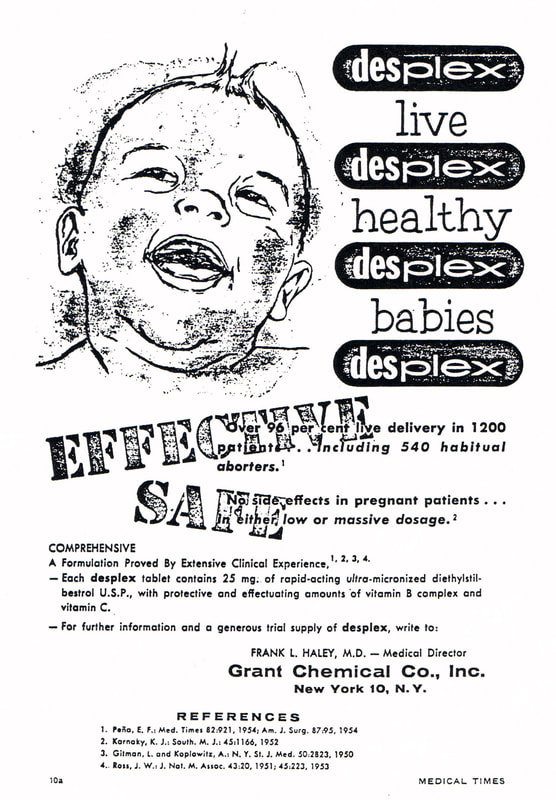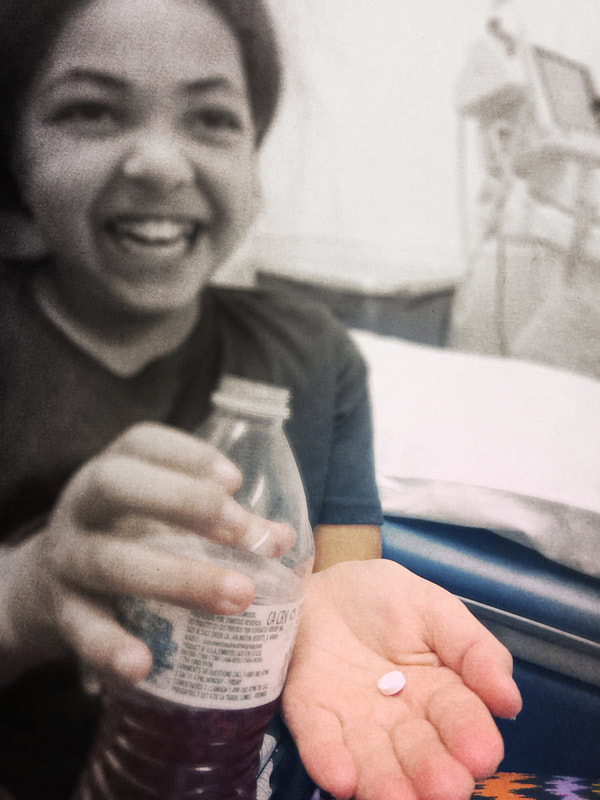|
There is a gender divide in medicine when it comes to how pain is seen, treated, and perceived in women patients. I am familiar with and write about racial bias in pain management - I was not prepared for the presentation of the intersectionality of medical racism, and the sexism, in the form of under-diagnosing and under-treating my 10 year old bi-racial daughter's pain. Nor was I prepared for or willing to accept that anxiety, hers or mine, was the cause for her pain when she has a diagnose for IBD, Chron's Disease, and an undifferentiated Systemic Autoinflammatory Disease that causes objectives measures of pain (lesions, elevated SED/CRP levels, visible inflammation, etc.) that measure 10/10 or the crying face on the pediatric pain scale.
Being female, being bi-racial, being a child, and having a rare disease is a recipe for under-management of pain and doubting of symptoms. And with that under-management of chronic pediatric pain, is a host of problems ranging from difficulty in learning to increased risk of chronic illness and mental health issues as an adult. In her case, the pain as not been treated as part of her underlying illness - and dismissed by some of her specialists. And she has become disillusioned and disbelieving that doctors are there to help her. As a former therapist, I almost found myself hoping that my daughter's pain was actually anxiety (hers or mine) and not the patriarchy... however, after a few years of therapy for each of us, lots of investigation of secondary gain, mind-body medicine courses, meditation, and a lot of yoga - our anxiety levels were and are measurably lower while her pain levels and inflammatory markers are higher. During those years of surfing siloed care and "doctor doubts" her oral lesions grew deeper and more painful, her CRP/SED rates steadily climbed, and I continued to push forward to find another answer - working against my own fear that I would be seen as a Munchausen's Mommy Dearest. I also felt deeply that her pain could and should be taken seriously - her pain would leave her sobbing and limp with fatigue; missing birthday parties, trips to the pool, and other coveted childhood moments. It is hard, given the data, for me to believe that this is not tied to the pervasive problem of under-diagnosing and under-treating pain in females and people of color. I would suggest were we turn our attention to research- we would find that female, children of color, are among some of the most under-diagnosed when it comes to pain. That the most vulnerable suffer the most and for the longest. A few weeks ago we met with the Integrated Pediatric Pain and Palliative Care(IP3) Team - a team that sheds light on these and other dynamics around pain to alleviate the suffering of under-treated pain in children. It is the first time anyone on this healing journey has suggested my daughter probably downplays the extremity of her pain and that she has grown accustomed to suffering. She has grown accustomed to be doubted and disbelieved by those charged with her healing. And it is the first time since she became ill that I felt the absence of the patriarchy and racial bias in how her pain was perceived and discussed. She was heard. She was seen.
0 Comments
When I imagined being a mom - I imagined picnics on sunny days, glittery tiaras glistening in the light of birthday candles, and sticky hands holding mine while walking to the nearby park. I anticipated patching up skinned knees with colorful bandaids, kissing boo-boo's, and running a cool hand across an occasionally fevered brow. There was no way I could have imagined that one day I would walk into a medical center to sign my 9-year old daughter into a clinical dosing trial for a drug never before used on children. And that I would feel more gratitude and relief than fear and trepidation. This piece has been entered in the Patients Have Power Writing Contest run by Clara Health designed to raise awareness about clinical trials. I am passionate about this cause and hope it will help raise much needed awareness about the power of breakthrough research. That scenario was especially unlikely given my own history as a DES Daughter - a history that includes a drug given to pregnant women that caused catastrophic health problems in the fetuses exposed in utero. As one of those babies born to that legacy I have suffered first hand from drugs not properly, fully, and transparently tested. I also now know what it means when patients have power. When clinical trials are patient-centered and the research transparent. And when informed consent is educated consent. Science has changed since I was born - and I am deeply glad it has. My oldest daughter had a condition that until very recently had no viable cure. As her disease progressed - I found myself having discussions with doctors about teen and young adult years that could include ineffective noxious drugs and organ transplants. I had trepidation about putting my 9-year old in a clinical trial, but total confidence in her research team. Being a clinical dosing trial, she was among the first group of children to ever be researched with this class of drugs. The first day of my oldest daughter's clinical trial was also my youngest daughter's birthday - friends met us at the hospital to cheer on the swallowing of the first dose of trial meds and then joined us at home later that same day to eat birthday cake. That day - we entered the world of clinical trials, biopsies, and birthday cakes. Participation in the clinical dosing trial has ensured that my daughter will live to see and celebrate many years of birthdays.
And while I will always be mindful about the use of any medications with my children - I have experienced first hand the incredible power and promise of emerging research. My daughter is cured. And that is why I am delighted to share our story and to work to support the efforts of www.clarahealth.com to ensure that patients know that they have power. We can and will change the world. |
AuthorI am mermaid and rebel - a mama to two - I believe in art, music and magic and the rest I cover up with glitter and tattoos. Archives
April 2020
Categories |




 RSS Feed
RSS Feed